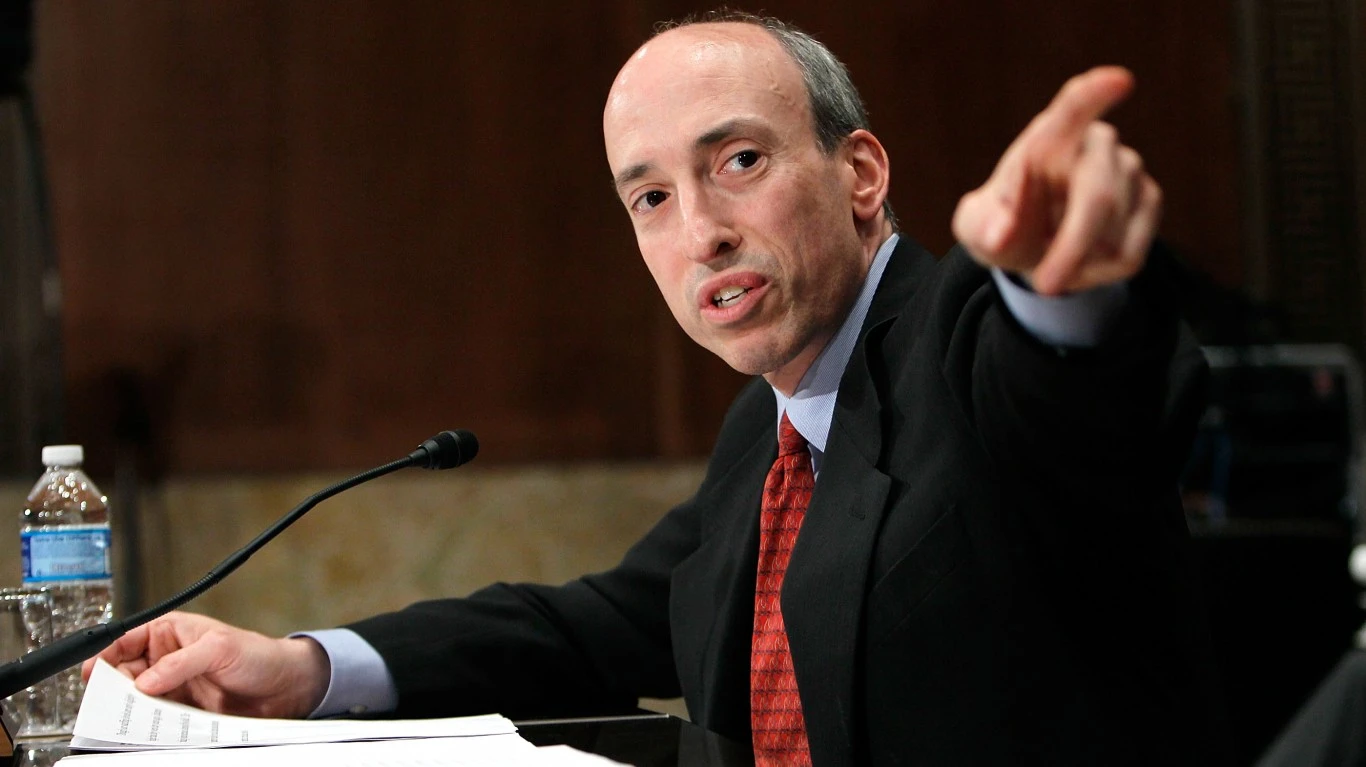
About a year ago, after the gusher of equity trades during the meme stock craze, newly confirmed U.S. Security and Exchange (SEC) Chair Gary Gensler waded into the controversy regarding a practice called payment for order flow (PFOF), which involves market makers (also called wholesalers) like Citadel, Susquehanna and Virtu paying brokerages to execute stock trades on the brokers’ behalf.
This is a lucrative business for the largest PFOF brokerages. TD Ameritrade received $994 million in PFOF revenue for 2020 and 2021, easily the most of any brokerage. Robinhood ranked second with $532 million, while E*Trade ranked third with $316 million, Schwab was fourth with $222 million and WeBull closed out the top five with $118 million in payments received.
The data was collected by BrokerChooser’s Ádám Nasli and published earlier this month. Nasli reviewed SEC 606 reports from 12 brokers to compile the data. Two of the brokers in his list, Fidelity and Vanguard, did not receive any PFOF revenues for the two years. Including the top five, the top 10 brokers received $2.27 billion in payments for order flow for the two years.
Among the market makers, Citadel paid the most to brokers, $2.6 billion, or nearly 40% of all PFOF to brokers over the two-year period. Susquehanna (G1X and Global Execution Brokers) paid out $1.5 billion (22% of the total), Virtu paid brokers $644 million (10%), Wolverine paid $628 million (9%), Two Sigma paid $205 million (3%) and Jane Street Capital paid out $61 million (1%). These six firms accounted for about 84% of all order flow payments to brokers.
Last month, SEC Chair Gensler said the agency is looking into rules changes that would increase competition for trading orders and improve pricing for retail investors. Robinhood receives about 75% of its revenue from PFOF, and it is to the firm’s advantage to have lots of orders from investors that the market makers are willing to pay for.
The SEC wants to know whether the brokers are sending PFOF orders to market makers who are offering the largest payment to the brokers instead of to the exchange that is offering the best price (called the NBBO, the National Best Bid and Offer) for the investor.
“Best execution” rules require retail brokers to send customer orders to the venue offering the best price, or a better price. The market makers generally make an offer that is better than the best price by a fraction of a cent. Because stock exchanges like the New York Stock Exchange and the Nasdaq cannot offer quotes of less than one cent, the exchanges lose the trade to the market makers.
Last May, BestEx Research published a report on the good, the bad and the ugly of PFOF. According to the report, market makers (or wholesalers) can improve the NBBO to investors by 15%. Moving that retail flow out of the dark and onto regulated exchanges would narrow the NBBO spread by 25%. Here is how the report’s authors, Hitesh Mittal and Kathryn Berkow, put it:
While superficially it may seem retail investors benefit from routing their order flow to wholesalers, the reality is quite different—especially given the recent rise in the total amount of retail trading volume. According to our estimate, if retail trading moved to a public forum the NBBO itself would decline dramatically, eclipsing the 15% difference between what is currently available on exchanges and what wholesalers offer in the form of price improvement.
Here’s a short video the Gensler made last month summarizing the SEC’s current thinking on PFOF:
Originally posted at 24/7 Wall St.
Sponsored: Tips for Investing
A financial advisor can help you understand the advantages and disadvantages of investment properties. Finding a qualified financial advisor doesn’t have to be hard. SmartAsset’s free tool matches you with up to three financial advisors who serve your area, and you can interview your advisor matches at no cost to decide which one is right for you. If you’re ready to find an advisor who can help you achieve your financial goals, get started now.
Investing in real estate can diversify your portfolio. But expanding your horizons may add additional costs. If you’re an investor looking to minimize expenses, consider checking out online brokerages. They often offer low investment fees, helping you maximize your profit.






